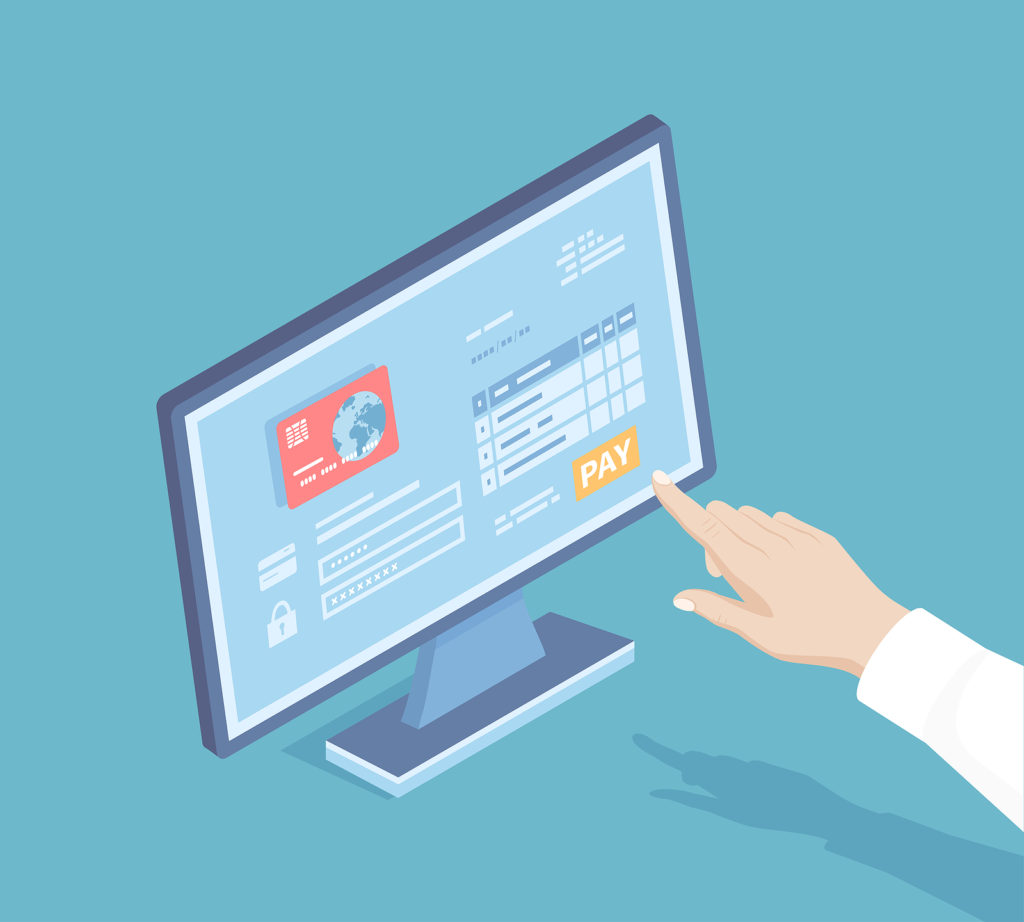
An ongoing issue for healthcare organizations continues to be the inability to collect patient payments in full. Once the COVID-19 pandemic hit, healthcare facilities and systems across the country experienced a devastating financial impact, upwards of $202.6 billion, according to the American Hospital Association.
With a considerable portion of healthcare revenue coming directly from patients, it’s imperative that all the payment options presented to them are as seamless as possible.
One option, commonly used in other industries, is card-on-file. By offering patients the ability to safely and securely store a card on file, healthcare organizations have the opportunity to collect a significant portion, if not all of the patient’s balance.
The benefits of offering this option extend not only to the financial health of your organization but also to your patients’ level of satisfaction and loyalty.
Benefits of Card Payments for Providers
Healthcare providers can quickly see the benefit of implementing a card-on-file payment option in a variety of ways.
Improve Cash Flow
Collecting post-adjudicated balances from patients is increasingly difficult for providers. Giving patients the option to sign a content to store a card on file and authorize payment for the post-adjudicated amount once the claim is finalized, guarantees that you receive their payment in full.
This option can be made even more attractive by offering patients a discount for paying in full with their card.
Ultimately, there is no risk of bounced or returned payments by utilizing this option. Furthermore, migrating check and ACH payments to debit cards can save providers around 34 cents per transaction.
Reduce Risk
Anytime card-on-file is given as an option, security is a primary concern. Tokenization of card payments ensures that they are processed securely and that consumer data is protected. This also provides protection from data breaches, as hackers are increasingly targeting healthcare organizations, more so during the COVID-19 pandemic.
Eliminating fraudulent behavior opens up more time that would have otherwise been spent on researching, disputing, following up, and tracking these unauthorized transactions.
Patient Satisfaction and Loyalty
The COVID-19 pandemic has left a growing number of patients unemployed and strapped for cash. Additionally, healthcare costs are continuously rising. Due to these factors, patients are unable to pay for their medical bills.
A good number of credit cards offer high spending bonuses, and many debit cards have rewards programs. Paying for medical bills by card enables patients to incur cash back rewards, points, and miles. Not only that, but credit cards allow patients to pay for large, unplanned medical bills.
Streamline Operations
Saving time on administrative tasks is key and when a payment option allows for that, you’re headed in the right direction. Offering a card-on-file option to patients means:
- Significant decrease in customer service calls, which in turn, saves on expenses
- Reduction in billing processes and decrease in administrative expenses around paperwork and check handling costs
- Reduction in manual processes needed to process, track, and research delinquent fees
- Reduction in the cost of processing check payments, while also eliminating the need to wait for a check in the mail
- Easier reconciliation and easier to track than ACH payments
Benefits of Card Payments for Patients
While payment options are becoming increasingly streamlined and convenient, targeting the consumer of today, a growing number of patients view credit card on file (CCOF) as their preferred method of payment for charges of $200 or less. Even though studies have shown a broad acceptance of CCOF by patients (78%), a small number of healthcare facilities offer this payment option.
We’ve outlined several benefits that patients can enjoy as a result of implementing a card on file as a payment option.
Reduces Risk of Fraud and Identity Theft
As mentioned previously, payment security is understandably a primary concern for patients. Many debit and credit cards offer great protection against unauthorized transactions if their information is lost or stolen.
With a card on file, there is no risk associated with putting sensitive details such as account and routing numbers in the mail.
Lastly, reputable patient payment platforms offer superior payment security with PCI Validated P2PE, HIPAA Compliance, and Omni Tokenization.
Convenience
Increasingly, patients crave convenience. Because of this, it’s crucial that your organization offers the ability for patients to make payments online. This eliminates the need to write checks, look for stamps, or worry about payments getting lost or stolen in the mail.
Debit and credit cards are easier to keep on file and patients can seamlessly track their monthly spending and budget.
Additionally, there’s no need to remember long account and routing numbers. Patients can easily pay with a card that’s already in their wallets.
We Can Help!
Start a conversation with one of our experts and learn how you can create a simpler method for collecting healthcare payments.
